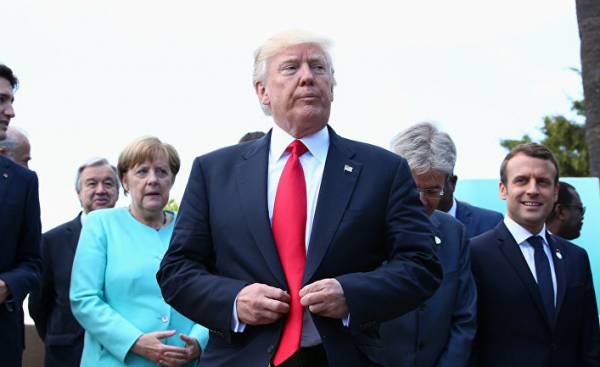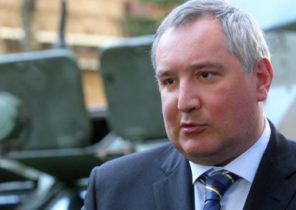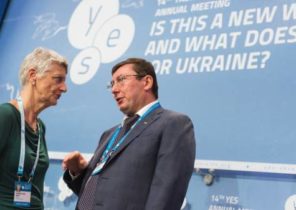
It was assumed that the first visit of Donald trump to Europe will solve a number of issues around US foreign policy. But the visit trump ended in a fiasco, and it was followed by vicious verbal sparring across the Atlantic about who is to blame for the fact that in the Western world emerged crack.
Dramatic as this suddenly happened a transatlantic split? Is the world on the threshold of a new era since then, as the US and European countries have demonstrated how differently they look at security policy, free trade and the climate crisis?
World leaders barely had time to go back home after which lasted for several days of discussions in Belgium and Italy, as Chancellor Angela Merkel delivered his speech in the pub and warned that the US — according to the experience that she received in the last days, more to be relied upon.
Donald trump wrote in response to Twitter about how “terribly harmful to the U.S.” German trade surplus and Germany is not enough money is invested in NATO and the military sphere.
Some just swelled up with indignation and said that the relations between Europe and the United States was not so bad since the Second world war.
Others don’t give the conflict a large value and look at the exchange of pins between the United States and Germany as for the game, the causes of which are rooted in domestic politics. After all, as Merkel and trump have their own difficult tasks at home.
Closer to the truth that the transatlantic relationship had not been so tense since 2003, when the United States attacked Iraq. But the opposition took place under a different sign: George Bush resisted the pressure to achieve “regime change”, which opposed German Chancellor Gerhard Schroeder (Gerhard Schröder) and France’s President Jacques Chirac (Jacques Chirac), while Tony Blair (Tony Blair) in the UK in their militancy was more accommodating, for which he was called a stooge of Bush.
Today, the roles partly changed. While members of the EU and NATO require active US engagement in the Affairs of Europe, trump isn’t showing much desire to support traditional allies of the us superpower.
Trump’s speech at the NATO summit in Brussels and the G7 meeting in Taormina led to the rupture in the previously seemingly natural “Atlantic connection”. The dismissive manner with which the President addresses European leaders, has attracted a lot of attention.
But the arrogant style of the tramp — it’s part of his political calculations. His boorish behavior towards the EU and NATO can be compared with those smiles, which he handed out at the meeting with Saudi king Salman and President of Israel Benjamin Netanyahu — the leaders that he feels the allies.
The 45th President of the United States often seems unpredictable and impulsive. Someone compared the Board of trump in the United States with the behavior of six children, who are allowed behind the controls of a jet plane.
But his actions in Europe — including the refusal to explicitly confirm the Charter guarantee of security that the United States should give NATO allies, is not a random mistake.
They need to be assessed in the perspective that you asked by trump, after boasting this way it was incredibly successful that he “nailed it”. Supporters of trump’s claim that in the course of this journey has been restored “America’s leadership” in the world.
His European critics believe that trump has demonstrated its inability or rather the lack of interest from the United States to ensure that in the future to be the leader of the Western world.
It’s getting really interesting. Supporters of trump is usually blamed Barack Obama is that he voluntarily relinquished the leadership role of the U.S. in the world.
But what makes the trump, intending to retreat from the world stage? Answer: it does exactly what it promised during its election campaign under the slogan “America first”.
First he was sent to the scrap a free trade agreement in the Asia-Pacific region, leaving thereby free a geopolitical space that will fill all the more expansive China.
And now he seems to have turned its back on Europe.
For Russia, which considers the unity of NATO and the EU as a strategic obstacle, opening up unexpected opportunities. In 2014, the G8 became the G7 when Russia expelled from the club of the rich in connection with the annexation of Ukrainian territory.
Three years later the G7 in practice split into G6+USA. This time it is unlikely that leaders like Angela Merkel or Emmanuel Macron, who now represent in the EU a strong Duo, will be tempted to move closer to Moscow in a situation when Washington moved away.
But it gives space to the Trump to make a reality of a different plan, which he, apparently, doesn’t want to give up: to go towards better relations with Russia.
In the short term is, perhaps, impossible, as at home now trump trapped because their attempts to get closer to Putin.
But the failure of trump to speak out in confirmation of the fifth article of the NATO Charter (which dealt with the principle of “one for all and all for one”) gives Russia an unexpected opportunity to try out what that means for the Alliance in practice.
This means that the threat of Central and Eastern Europe, especially the Baltic countries has increased.
The fact that NATO forces are now located in the Baltic States and Poland, can be a calming factor.
The problem is that in the ruling circles of Washington reign deep differences over security policy. The Minister of defence James Mattis (James Mattis) recently in an interview with the newspaper Dagens Nyheter said that Sweden — which is not even a NATO member — will receive American assistance in the event of a Russian attack.
But the trump, as can be seen, can not guarantee the same allies in NATO.







